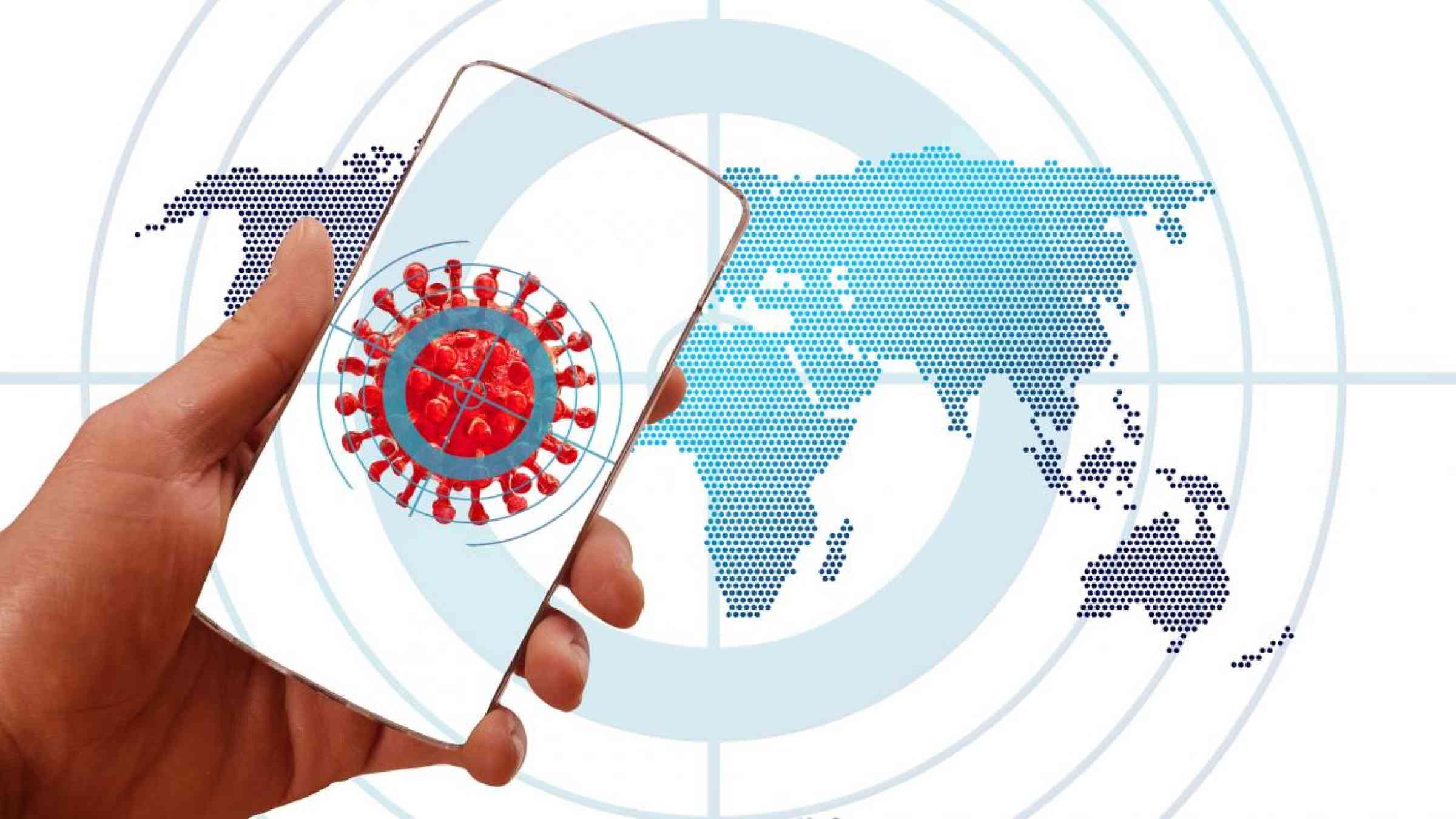Please help us improve PreventionWeb by taking this brief survey. Your input will allow us to better serve the needs of the DRR community.
Coronavirus: location-tracking apps could stop the disease – here’s how

Eivor Oborn, Professor of Healthcare Management, Warwick Business School, University of Warwick
Nearly half of the world’s population is now locked down in their homes to avoid spreading the coronavirus. With a vaccine likely still many months away, many countries are looking for ways they can get their people and economies moving again without risking further deaths. New research suggests that using an app to track people’s movements and identify and isolate anyone who has come into contact with an infected person could be critical in avoiding or leaving lockdown.
This kind of contact-tracing technology has already been used with some success in countries such as China and South Korea. But there are questions over whether western countries would accept such levels of surveillance. However, as someone who has spent years researching the use of technology in healthcare, I feel there are good reasons to believe people would be willing and motivated to use a location-tracking app to help end the pandemic.
The new research, conducted by the University of Oxford and published in leading journal Science, shows the virus is spreading too quickly for the pandemic to be contained by simply isolating those we know are infected or by manually tracing all their contacts. Working out all the places a patient has been and finding everyone they have been in contact with to test or isolate them can take days or weeks – much slower than it takes the virus to spread.
By modelling the spread of the virus in response to different tracing strategies, the researchers showed that only digital contact-tracking could get control over the pandemic. This would involve using a smartphone app to track people’s movements and automatically notifying them if they have come in contact with someone known to have caught the virus. It would then encourage them to immediately self-isolate and prevent further contamination.
The location-tracking aspect of the app could be enhanced by enabling users to check in to locations such as shops, public transport stations or workplaces. To encourage more people to use the app, it could also provide access to health services, information and even food or medicine deliveries during self-isolation. The researchers also said that the app should be combined with other measures such as social distancing and frequent handwashing.
The two practical questions about relying on such an app to tackle the virus are: would enough people be motivated to download the software and would they be willing for health authorities to constantly track their movements? Given our near-wartime conditions, I believe there are many good reasons even democratic states will and should adopt this strategy, even if citizens are allowed to participate voluntarily.
Research has shown that people are willing to share personal health data when they receive significant value in exchange. Giving up some personal freedom can lead to lifesaving benefits in times of crisis and so provide important value.
Many governments are already enforcing a widespread lockdown that prevents people leaving their homes except in limited circumstances. Police are stopping individuals and cars, handing out fines and even arresting people (who in some cases may later receive prison sentences) for failing to comply with restrictions.
The digital tracker could be presented as a safe way to end this highly onerous and in some cases unpleasant situation. It seems reasonable to think the low-effort requirement of downloading an app would be much preferred – even if it constantly tracks you. A tracking app would enable us to watch over each other so we can get safely back to work, school and something resembling our regular lives.
It may even make it easier to visit family members who are at particular risk because you would have a much greater chance of knowing if you had come into contact with the virus. People would be motivated to use the app because it would help them keep loved ones safer but not completely cut off from contact.
Lessening opposition
It is also very likely that the virus will continue to circulate globally for an extended period, starting new infections even in countries where it may seemingly have been wiped out. Over time, general public opinion about the risks of being tracked will probably become less opposed.
People may actually start to expect this level of intervention in their lives from the state or public health organisations. For example, the UK has gradually become more accepting of privacy-infringing security measures such as CCTV, especially since the 7/7 terrorist attacks on the London Underground and bus network.
Of course tracking apps presents risks to public trust. One challenge is to ensure that tracking systems are not indefinitely maintained. When the pandemic is over, citizens need assurance that Big Brother will not be looking over their shoulder. There also needs to be transparency over who has access to the data, what they can do with it, and when it will be destroyed.
But in the meantime, the new research suggests digital contact tracing is likely to be the best means for restoring a sense of safety and freedom in our communities.
![]()
Explore further
Please note: Content is displayed as last posted by a PreventionWeb community member or editor. The views expressed therein are not necessarily those of UNDRR, PreventionWeb, or its sponsors. See our terms of use
Is this page useful?
Yes No Report an issue on this pageThank you. If you have 2 minutes, we would benefit from additional feedback (link opens in a new window).